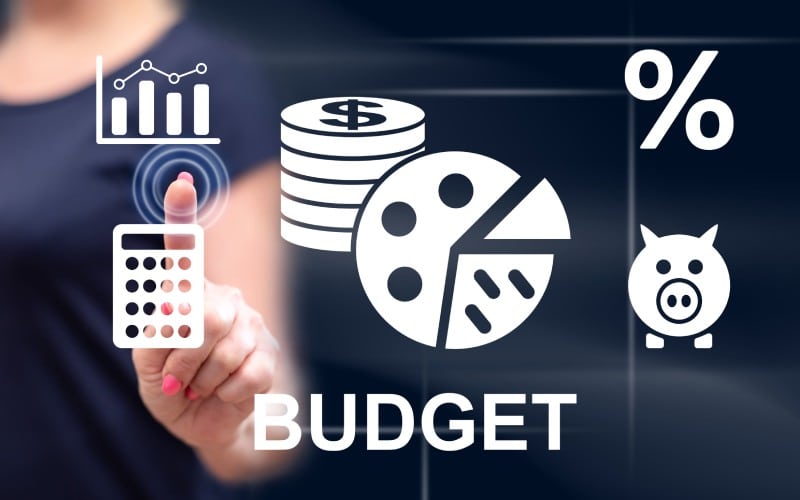Effective budgeting is crucial for sustaining a dental practice. It ensures profitability and achievement of business goals while maintaining adequate cash flow throughout the year. With a well-structured budget, a dentistry practice can align income with expenses, making it a valuable tool for financial management. By annually assessing revenue and expenditures, a business can create a forecast, ensuring sustained profitability.
However, a strategic approach to budgeting is essential; this helps dental practices achieve short and long-term goals, identify areas for potential spending adjustments, and optimize overall profits.
Table of Contents
ToggleWhat Is the Difference Between a Budget and a Budget Strategy?
A business budget outlines expected income and expenses, acting as a short-term financial plan and a basic tracker of finances. On the other hand, a budget strategy includes broader decisions and aspects guiding the budgeting process. It addresses long-term goals, risk management, and overall financial vision by incorporating a decision-making element in the process.
Why Have a Budget Strategy?
Going beyond a budget to a strategy is crucial because it provides a framework for effective decision-making within budget constraints. The strategy ensures that financial choices align with the company’s objectives, aiding in navigating challenges, fostering growth, and maintaining fiscal discipline. While a budget sets specific figures, a well-crafted strategy adds depth and purpose to financial planning, elevating the business’s overall financial management.
For dental practice owners, a strategy addresses aspects like equipment upgrades, technology investments, and compliance with healthcare regulations, enhancing practice efficiency. It allocates resources for patient care, marketing, and staff development, addressing and enabling long-term goals such as service expansion or facility upgrades.
Start With a Comprehensive, Active Budget
A comprehensive budget improves financial clarity and guides strategic decisions for enhanced profitability. Begin by reviewing previous spending to identify budgeting areas, adding a 5 to 10% buffer for unforeseen expenses. Anticipate potential changes such as new services, hires, or expansions and adjust your budget accordingly. Regularly reassess your budget, incorporating strategic direction changes, and break down management numbers to monitor monthly and weekly spending. This disciplined approach ensures financial stability and supports effective decision-making in your dental practice.

Budget Categories
To ensure a clear budget for effective dental practice management, categorize key areas separately and be thorough. Start with payroll, covering salaries, training, insurance, incentives, and benefits.
Next, consider building costs, including payments, utilities, maintenance, insurance, taxes, and repairs. Include supply costs for equipment and specialized items to identify savings opportunities. Allocate accurately for outsourced lab work, technology, and equipment maintenance; these categories will require research and sourcing. Budget for marketing to attract new customers and sustain growth. Also, include categories like debt repayment and savings for contingencies or taxes, which are often overlooked.
Clear categorization ensures comprehensive budgeting, minimizing the use of ‘miscellaneous’ categories, for better organization and more actionable information.
Strategy Tips
Focus on Your Goals, Too
To encourage the profitability of your dental practice, strike a balance between prudent budgeting and fostering growth opportunities. Focus on your goals as well as spending. While it’s important to save, and a budget can help with that, allocate enough resources to upgrade, expand services and invest in effective advertising to attract more patients.
If you set revenue goals and have a clear budget, it will also spur you on to notice opportunities; if your goal is to increase revenue by a set amount for certain procedures, and you notice the equipment is often idle, you can look into more efficient scheduling of patients to fit more procedures in, or other solutions.
Develop a comprehensive budget that aligns with your long-term goals, considering factors such as risk management and market competition. Establish realistic but forward-facing revenue and net income goals based on historical data, industry benchmarks, and desired increases in income. Regularly review and adjust your budget to adapt to evolving priorities and capitalize on growth prospects.
This allows you to tailor your budget to support strategic objectives and growth while controlling costs and maximizing returns.
Leverage the Budget to Control Spending
Accurate budgets help manage spending efficiently by guiding purchasing decisions, preventing overspending, and providing insights for better financial choices based on past and present spending habits, not just by setting spending limits. Effective budgeting and careful tracking help identify areas where spending can be improved.
Dental inventory needs, order volume, and other expenses vary monthly, making it tricky to keep track. Wise spending is made even harder by the changing costs of supplies when renegotiating contracts with vendors. However, where there’s a lot of spending, there’s also a chance to save big. The same supply expenses that are hard to track are also one of the biggest costs after salaries.
By budgeting, you can see where you’re spending money unnecessarily. Keeping a close eye on dental supplies helps catch issues like overstocking or waste. And if vendor prices go up, you will see it, and can negotiate for discounts or look for other options. You’ll also notice trends in increases like equipment maintenance, repairs, and energy costs, so you can take action.

Don’t Do It Alone
Collaborate with your dental practice staff, getting their valuable input on daily operations and direction, for a more effective budget.
Also, seek advice from experienced experts to gain insights and efficiently grow your practice within a budget. Dental Tax offers bookkeeping services that ensure you have accurate and comprehensive records, with detailed reporting for timely and actionable information. We can guide you on budgets to control wasteful spending while creating opportunities for sustainable growth. Enjoy the confidence of knowing that your finances are in expert hands, ensuring accuracy, efficiency, and a solid plan for sustainable growth.
Adam has an MBA from the Richard Ivey School of Business in London and also holds a Chartered Investment Manager designation.
- Maximizing Tax Deductions for Dental Practices - April 1, 2024
- Tax-Efficient Investing For Dentists - March 28, 2024
- 2024 Tax Insights: Key Changes Every Dentist Needs to Know - March 6, 2024





